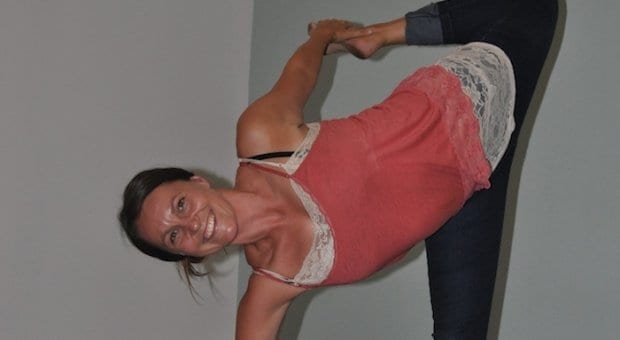This summer, Kula yoga studio celebrated the first anniversary of Queer Yoga, its first class by, and for, queer people.
The class was added to the studio’s roster last summer as part of the “positive spaces initiative,” a project that aims to create safer spaces for queer people and folks of colour by challenging staff and students alike to think about their power and privileges in society.
“We feel really excited because over the past year the space has become a lot more diverse,” says director Christi-an Slomka.
Brown Girls Yoga, a class for women of colour, joined Queer Yoga. Both are designed to create a space for those who felt excluded or uncomfortable in other classes. Teachers who have an awareness of race, gender and sexuality issues — awareness Kula is trying to bring into every aspect of its business — lead both classes.
In addition to creating an anti-oppression committee and seeking numerous trainings for staff, the studio made a number of small changes that make a huge impact. Creating a gender-neutral change pod, doing pronoun checks and using consent cards are a few things that make coming to class a little easier for many students.
“Yoga, ultimately, is about sitting in the discomfort of a myriad of things and holding them all; to sit and listen to them with a lot of compassion and respond to it with creativity or love so that transformation and healing can happen,” Slomka says. “Ultimately, I think that’s what anti-oppression work aims to do as well.”
Uncomfortable with the heterocentric language used in most yoga classes, Heather Douglas began offering a class just for queer and trans students six years ago.
“In general, there is a lot of weird sexist and gendered assumptions made, which as a queer or trans person going to class, you’ll experience it as a phobia,” Douglas says.
A queer and trans yoga class creates a space for queer folks but also means learning from a teacher who is familiar with LGBT issues and experiences — from not assuming gender or pronouns, to being mindful of binding or tucking, to knowing how important it is to have gender-neutral change rooms, she says.
Douglas says not every queer person wants a separate class, but having one available makes yoga more accessible.
“For people who’ve never had that anxiety coming into the space and feeling like they don’t belong — that’s great. What we can do with that privilege is to step back and make space for [others],” Slomka says.
Jill Newberry-Evans has offered queer yoga classes since 2001, sometimes teaching in her own living room when studios denied her a space.
She says many of her students would have never reaped the benefits of yoga had there not been a space just for queer folks. She has seen students reduce chronic pain, better cope with anxiety and become more comfortable in their own skins.
“In essence, our practice is about developing a compassionate attitude toward our bodies,” she says.
These teachers are committed to creating a safe space for students but know that it is not always possible. Newberry-Evans says that ultimately, it is her responsible to ensure the safety of her students. She deals with incidents of oppression on a case-by-case basis. The Kula staff, too, say they are always there for students, even if the issue is about another teacher.
Queer Yoga
Wednesdays, 5:30pm
Kula in the Annex
$8
Queer and Trans Hatha Flow, with Heather Douglas
Tuesdays until Dec 10, 6pm
The Centering Space
If registered: $175 for 14 classes (sliding scale available)
Drop-in: $15 or PWYC
LGBTQ Yoga, with Jill Newberry-Evans
Tuesdays, Sept 17 to Oct 22, 8:45pm
Prana Fitness Studio
If registered: $89 for six weeks
Drop-in: $18
Trans Yoga, with Jill Newberry Evans
Sundays, Sept 29 to Oct 10, 4:30pm
Prana Fitness Studio
PWYC
Queer-Friendly Yoga (Beginner to Level 1), with Laura Kane
Tuesdays, 5:30pm
Six Degrees Community Acupuncture
PWYC
Yoga at The 519
Mondays, 2pm
Thursdays, 4:30pm
Saturdays, 2pm
Free

 Why you can trust Xtra
Why you can trust Xtra


